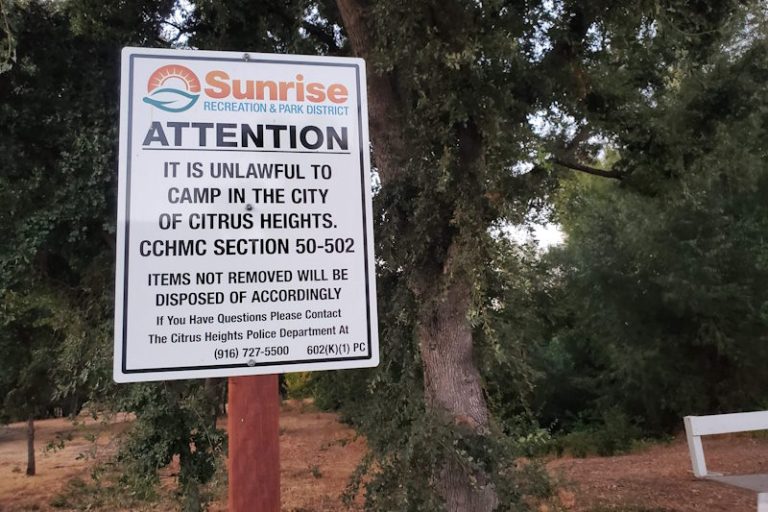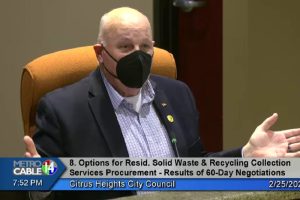By Bruce Lee–
As Sacramento Taxpayers Association president my duty is to represent you, the taxpayers. You may have read earlier OpEds regarding Measure M, but that’s not my primary purpose today.
Now Measure M is a BAD TAX and you should clearly vote “NO” on it. Simply put, the bad tax formula is: No Accountability + Never Ending + No Guarantee on how spent = BAD TAX.
Plus, sales taxes are regressive which disproportionately hurt the lower income, fixed income, disadvantaged, and elderly. That’s why the NAACP opposes Measure M. And, this tax is during the middle of a pandemic/economic crisis when thousands are unemployed and local businesses are shutting down.
Further, Citrus Heights does not need the money as they only have a two-year problem until millions arrive annually from property taxes. They can manage their expenses while things are lean, just like every family must do. That may not be their first choice, but they can do it.
However, that said, let me share insights I learned about governance in Citrus Heights over the past months working on Measure M. I’m a former elected; government university faculty; seasoned practitioner of government.
1) Citizens, you must take responsibility and ownership of your governments – local, state, etc. They are not some vague entity about which we sneer. While citizens have delegated responsibility to government, many have abdicated responsibility for the community and just look at government as their provider. The government is YOU. Our government is no better than US together.
2) Citrus Heights Councilmembers appear to stay in office way too long. Institutional history is very valuable, but there is a balance. When serving too long, Councilmembers entrench their power base, and they get too close to staff where the council serves as a rubber stamp. And, they do not ask the hard, analytical questions. The “form or look” of governance replaces the “substance” of governance.
3) In my experience, not all elected officials are intelligent. Some are likeable, but they can still be dumb. For many elected, their motivation subtlety revolves around ego. They like being called the Honorable this or that.
We tend to defer to and treat electeds way too nicely, whereas they are simply our employees. Some electeds are just figureheads, only in the office as a stepping stone to greater power – I find that particularly distasteful.
(I remember one newly elected councilmember who a week after election was telling me his grand plans of who to suck up to so that he’d be reelected in four years. I told him, “Just focus on doing your JOB. And if you do a good JOB, maybe you’ll be reelected.” Which points out, people often get into office for all of the wrong reasons. It’s not a public service, but an ego-satisfaction or career.)
4) People like power and power corrupts. Then, the governance process becomes political, petty, and self-serving. You don’t provide honest, logical answers, but you “spin” things to get what you want.
Measure M is spun as 1 cent, not 1 percent. Even the ballot language is spun like a sales job. If it was honest, it would simply say, “A one percent sales tax with no sunset date projected to raise $12 million a year which may be spent in any way the current or future city councils may choose.” Clear, simple, and to the point. Of course, the current council cannot mandate how the money will be spent a couple of years down the road, unless the measure puts it into writing for the voters.
5) City salaries are massive. The city manager compensation package was $411,610 in 2019 per www.publicpay.ca.gov and growing. The president is paid $400,000 with much more responsibility. The challenge with BIG compensation is that you begin to believe you deserve it. In reality, many people could do that job just as well for $200,000 or less. See the salaries and video of how the city manger broke his “no debt promise” at votenoonm.org/no-spin-facts-about-m.
6) When power is consolidated, governance becomes petty … and people are afraid of the city. So many people have told me, “Don’t use my name, because if the city finds out, there will be repercussions or social shunning.”
7) When power is consolidated, self-serving dealings happen. Many vendors to the city (which are based outside of the city) poured tens of thousands into the Yes on M in a “pay to play” program. Stone’s Casino’s parent company donated $10,000! Amazingly, in the same month, the “sunset” clause in their contract with the city since 1997 was eliminated completely.
Plus the city used taxpayer dollars to sell Measure M. The Howard Jarvis Taxpayer Association stepped in to tell the city to stop illegally using public funds to advocate for Measure M. (See letter)
8) Worst of all, when you consolidate power, you continue to protect your power. On Oct. 8, the city changed a 17-year policy where any two councilmembers could put an item on the agenda for discussion. Now it must be a majority. This change insures that the minority will never even have the chance to discuss an item which the majority opposes.
Citrus Heights council votes 3-2 for controversial rule change
Let me say, beware Citrus Heights citizens. Inside the white washed tomb, some things stink within the city. And, if you continue to give them more power and more money, and do not take ownership of your government, the stink will continue to grow.

Bruce Lee is president of theSacramento Taxpayers Association, and a spokesman for the No on Measure M campaign.
Want to share your own thoughts on this topic or another local issue? Submit a letter to the editor or opinion column for publication: Click here










